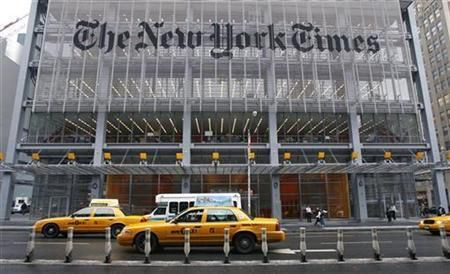Chinese Hackers Attacked New York Times Computers After Wen Jibao Investigation: Report

The New York Times published an article on its website Wednesday evening alleging that "Chinese hackers have persistently attacked The New York Times" over the past four months.
The article states that security experts determined that the hacking attacks "coincided" with Times Shanghai bureau chief David Barboza's work on an in-depth investigation into Chinese Prime Minister Wen Jibao that exposed that some of his relatives had earned billions of dollars through various business deals.
Shortly after the piece -- which was called "Billions in Hidden Riches for Family of Chinese Leader" and cast Wen and his associates in a negative light -- was published online on Oct. 25, Chinese authorities blocked the New York Times website throughout the country, in a move that was almost definitely timed to help soften the blow of the Wen story, according to the Washington Post.
And the new revelations by the Times expose another level of the Chinese government's willingness to take major steps against foreign publications critical of the powers that be there.
The Times report states that the Chinese hackers broke into Barboza and former Beijing bureau chief Jim Yardley's email accounts during the hacking attacks.
The Times' executive editor, Jill Abramson, discussed the breach of email accounts in the Wednesday article:
“Computer security experts found no evidence that sensitive e-mails or files from the reporting of our articles about the Wen family were accessed, downloaded or copied,” Abramson said.
And security experts told the Times that they found evidence that every Times employee's corporate password was stolen, and they were used to access 53 employees' personal computers, many of which were located outside of the paper's newsrooms. But it appears that the target of all the hacking was only data on the blockbuster story by Barboza, and that no other data was targeted, the Times wrote.
The Times article points out that this is not the first such example of Chinese espionage against American media companies. Bloomberg News was hit by Chinese hackers in 2012, after an article that revealed the wealth of family members of the country's then-vice-president, Xi Jinping, who is about to become supreme leader, was published by the outlet.
© Copyright IBTimes 2024. All rights reserved.





















